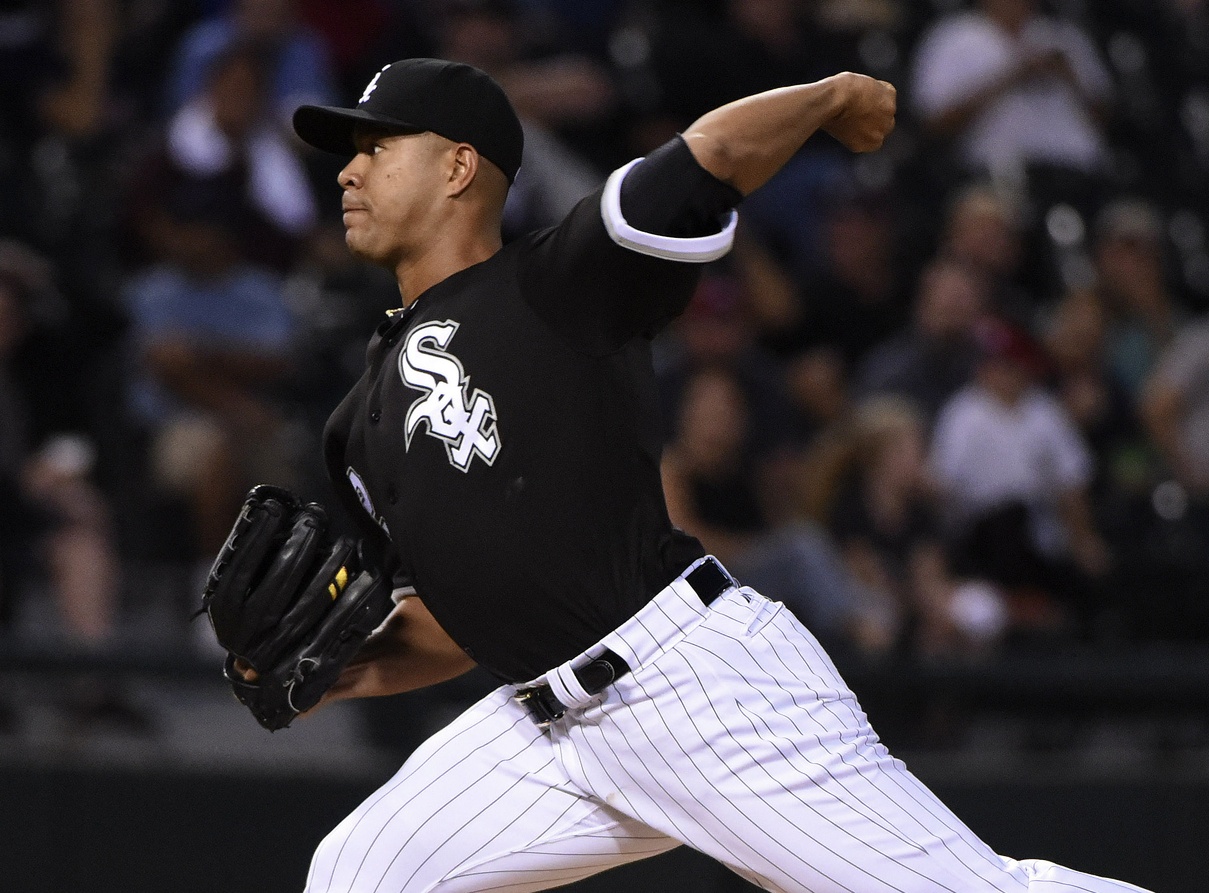As a student of 20th century history, I have read first-hand accounts of some of the most horrifying atrocities imaginable. Brutal slaughter, permanent displacement, human cruelty once thought impossible. And yet there is always still room for a new level of shock and disgust:
“One GM said [Jose] Quintana was ‘conspicuous by his absence in conversations we had with the White Sox. It leads me to believe they’d like to hold on to him. [Chris] Sale was mentioned, [Carlos] Rodon was mentioned and all the others, but not Quintana.'”
Mother. Of. God.
Jose Quintana, the man with a 46-46 career record despite a 118 ERA+, who has not seen four runs per game of support since 2012, possibly kept on hand to live out the rebuild. Is there no limit for suffering?
That information coming from the Boston Globe’s Nick Cafardo, speaking to a single source while writing a national column attempting to summarize the leaguewide market, so there are obvious limitations on the certainty to place on this. But to take it at face value just for the sake of passing the time, there is a certain logic to it, even if holding out Quintana would be the White Sox holding out their second-best trade chip. If the Buster Olney-reported maxim of ‘anyone with fewer than four years of team control is for sale’ holds, then Quintana is exempt, and Sale is not.
Moreover, Sale is one of the top-10 most talented pitchers in the game, his value is that of a bonafide ace to head up the rotation of nearly any team. His contract enhances his value, but he is globally sought. Quintana, a hyper-affordable No. 2 starter, may not be as valuable to possess for the Dodgers or Red Sox as he would be for a smaller budget team, such as the White Sox themselves. Maybe. Having someone you don’t need to bite your fingernails off if he goes through the order a third time is sort of valuable to everyone, though. To suggest there is some difference in his value to the upper crust is not to suggest it is not there.
Sale also has not been the raging center of multiple clubhouse conflicts in the last year, curiously tinkering with missing fewer bats (strikeout rate dropped by over six percent) or avoiding his once dominant out pitch (changeup use dropped by nearly seven percent), or dealing with any other weirdness that might make us question how long he will stay effective. To be clear, Sale is better than Quintana, healthy, and a good bet to outperform him over the next three years, four years, eight years, etc. And any bet on Quintana still being a vital contributor in 2020 is a very risky one, but there’s no swift-arriving deadline for moving him. There’s no obvious argument for keeping Quintana over Sale, but if the Sox went down that path, there’s some logic they could squeeze out of it.
It’s a bit easier to conceive of the logic for moving Rodon, and not Quintana, and it’s something more concrete than “Let’s just keep one of them, just because.” Rodon is still pretty uncertain to reach the No. 2 starter ceiling that his wipeout stuff implies. His 2016 featured more of the fits and starts typical of a young pitching prospect than the rapid ascents Sale and Quintana enjoyed, and if the Sox lack confidence in his ability to take the next step, this could be a good opportunity to sell on his potential while it’s still there.
Selling everyone is a more compelling direction, but the Sox keeping Quintana would be more encouraging to the notion that the payroll limitation to build a contender isn’t too low, but selling Rodon make the idea of being relevant in 2020 seem a little ambitious if the roster is going to be torn up to that degree. Nate Jones is also someone technically exempt from the three years of control maxim, but he turns 31 in January and has an extensive injury history, so he would not be the most a logical part of a 2020 plan. Major league players shielded from the sell-off besides Tim Anderson and Adam Eaton, perhaps, are hard to think of at this point in time. So the 2020 team is being led by a lot of players we have not seen play in the major leagues. Perhaps you can visualize Zack Burdi throwing the final strike of the World Series to Zack Collins and the whole team piling on each other in a glorious collection of joyful Zacks, but it’s difficult for the rest of us.
Timelines might be a lot easier to figure when some of the Sox returns start coming in. One-year rentals Todd Frazier and Melky Cabrera cannot hang around forever, but they could be consolation prizes for when the Justin Turner, Yoenis Cespedes and Jose Bautista markets set themselves.
This is a long road to get to the same place of “I don’t know, we’ll see what they do,” but the Sox are both not being particularly transparent, and flirting with uncharted territory. They have never committed to a full-blown rebuild, and even using language that indicates them leaning that way does not mean they are going to carry out the full-bore teardown that we typically associate with rebuilding. Rick Hahn said we would understand what the Sox are doing after the first couple of moves this offseason, but I’m betting there will still be questions until the full scope of their path is defined.
Lead Image Credit: Matt Marton // USA Today Sports Images

It would seem to me that Quintana gets you more in return than Rodon would in a trade. I can’t imagine a scenario with any other MLB team where that doesn’t hold true.